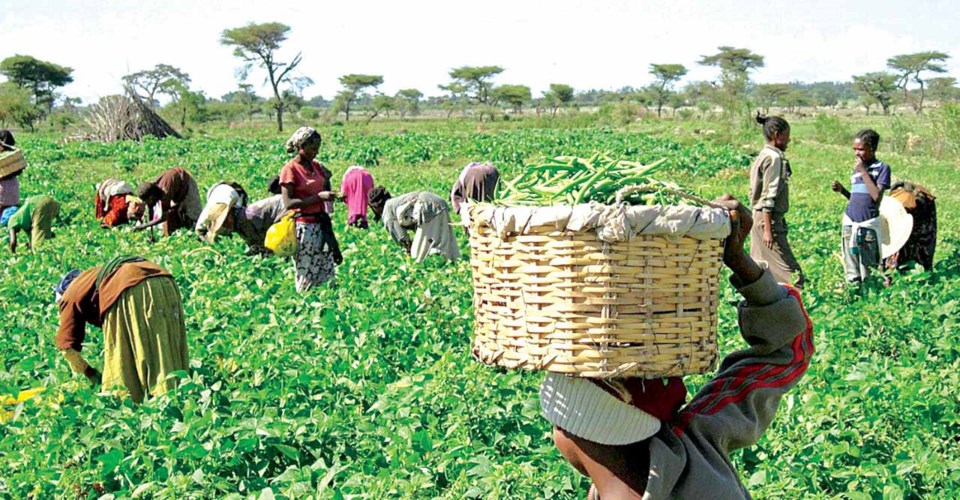Governor Sanwo-Olu disclosed this at an event held on Tuesday with the theme “Implementation of Exploratory Dialogue of the United Nations Food Systems Summit in the South-West Geopolitical Zone”, saying, “The State has completed its five year Agric master plan which would be raising our capacity to be a key player in agricultural production, while also creating a marketing platform for the export of local agro-allied products and improving food security”.
Sanwo-Olu was represented at the summit by the Commissioner for Economic Planning and Budget, Mr Sam Egube, who affirmed that the State Government is “putting in optimum efforts to ensure that the present administration did everything within its power to support the agricultural sector and promote a sustainable food system”.
He said, "In a bid to also ensure we maximise the opportunities inherent in the agric sector, we have also put in place the Lagos Aquatic Centre of Excellence (LACE), which is a fish-processing centre capable of stimulating our fish capacity production from 20% to over 60%. This will help our people have access to more healthy and nutritious food content and increase the potential of the aquatic sector in the nation."
While maintaining that rice remains an important staple food in Nigeria, Mr. Governor stated that the 52-tonne per hour rice mill in Ikorodu will soon be completed to enhance food security in the State.
Sanwo-Olu revealed that the State Government has introduced a number of Agriprenureship programmes like the one set up at Avia-Igborosun, Badagry, to train and expose the youths to the business of agriculture, introduce new innovations to the agricultural sector and most importantly, improve values across the agric value chain.
Informing that the administration is also partnering with leading food exporting nations to further develop food chain systems and production techniques for self-sustenance, as well as expansion of food production in areas of comparative advantage, Sanwo-Olu declared that Lagos is ready to work in collaboration with other States and the Federal Government.
He disclosed that the government plans to spend N2.755bn on Agro-Processing, Productivity Enhancement and Livelihood Support (APPEALS); N1.349bn on Lagos Wholesale Produce Market; N1.7bn for Rice Value Chain, N500m for Development of Ketu Ereyun, N525m for Value Chain Empowerment and N310m for Shonghai Farms, among others.
“You will all agree with me that the Government alone cannot ensure the sustainability of our food system in the nation. It requires combined efforts of all stakeholders within the food system. I, therefore, use this opportunity to appeal to our financial institutions to make funds, in the form of loans and grants, readily available to farmers and other stakeholders within the system to expand and implement those ideas that can make our food system more sustainable”, Sanwo-Olu said.
The Governor implored those in the Information and Technology sector to develop applications and other digital skills that can benefit and support the food system.
Governor Sanwo-Olu also urged the gathering to find solutions to the storage and packaging of agricultural produces, noting that the agricultural sector can make do with more mechanised modern equipment, composting facilities, accessible water, energy, transportation and storage facilities to ensure that farm produce are kept fresh and meet the needs of the ever-growing population.
He reminded the participants that one major loophole that the pandemic brought to light in the food chain system is the lack of adequate processing and packaging, stressing that when the lockdown was imposed to curb the spread of the virus, many foods produce was wasted as a result of halted food production and interruption in the food supply chain.
“Had there been an advanced storage, processing and packaging that were properly structured to transform items like yam into packaged yam flour and even tomatoes to puree, which has a longer shelf lifespan, the mass wastage could have been averted," Sanwo-Olu noted.



